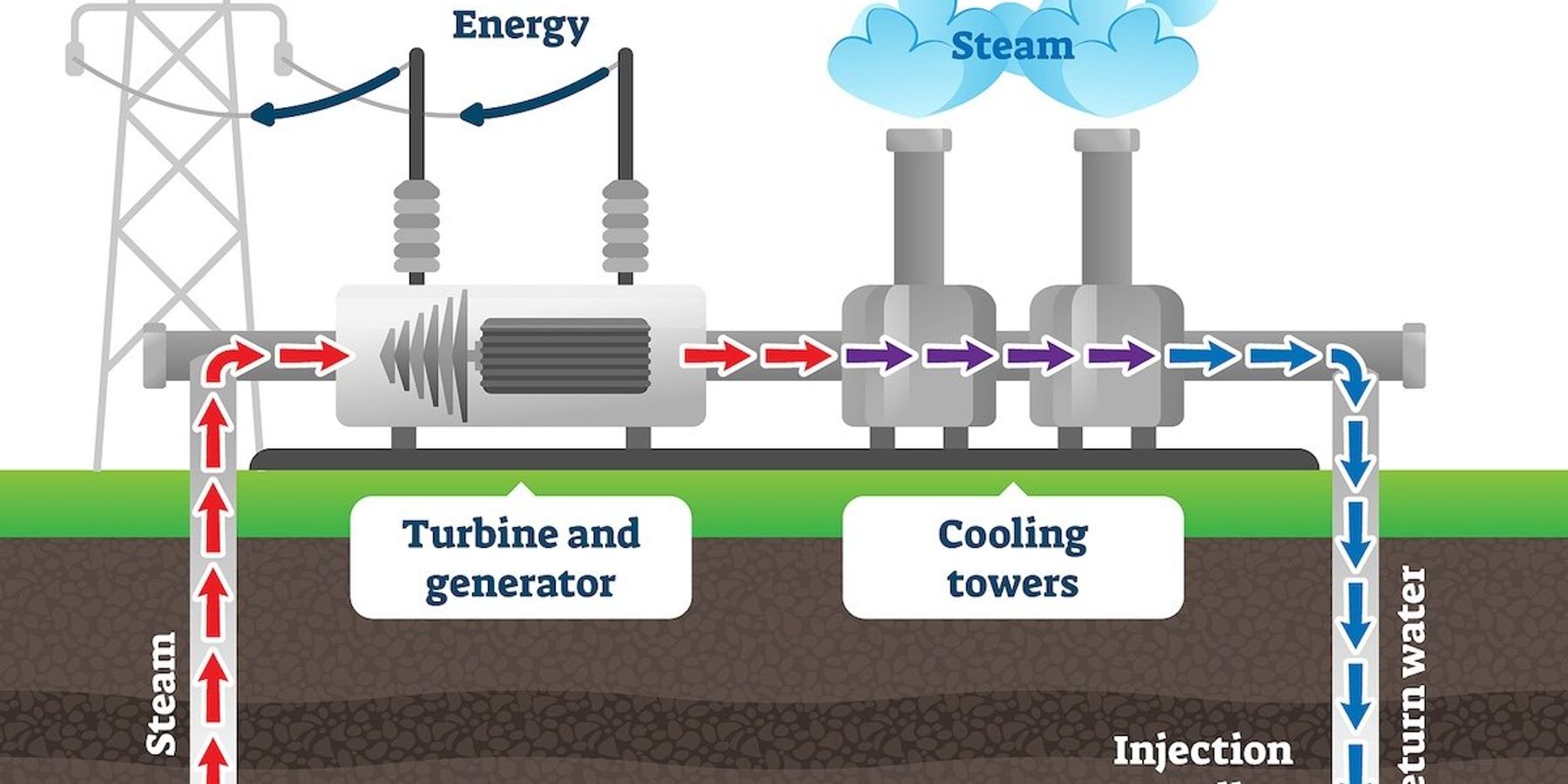ocean
Scientists warn that 2023's extreme ocean heat may signal a major climate shift
A new federal report reveals that 2023 saw record-breaking ocean heat and dwindling cloud cover, suggesting unprecedented changes in Earth's climate.
In short:
- The report highlights that 94% of the world’s oceans experienced a marine heatwave in 2023.
- New classifications like "super-marine heatwaves" are being used to describe the extreme warming events.
- Last year's record-low cloud cover allowed more solar heat to reach Earth’s surface.
Key quote:
“Sometimes people classify marine heatwaves from category one to category four, but a super-marine heatwave is above all that.”
— Xungang Yin, NOAA climate researcher
Why this matters:
These unprecedented marine heatwaves and reduced cloud cover could signify a rapid shift in global climate patterns. The resulting impacts on marine ecosystems and weather could have serious, long-term consequences.
Read more: Surprise! Unexpected ocean heat waves are becoming the norm
North Atlantic's record heat waves may fuel an intense hurricane season
A marine heat wave in the North Atlantic has set daily temperature records for over a year, raising concerns about its potential to drive an unusually severe hurricane season.
Chelsea Harvey reports for E&E News.
In short:
- The North Atlantic has experienced unprecedented marine heat waves, breaking daily temperature records for over a year.
- Rising ocean temperatures are linked to increasing the strength and frequency of hurricanes, posing significant risks.
- This warming trend could signal a potential shift in global climate patterns, alarming scientists worldwide.
Key quote:
“It could imply that a warming planet is already fundamentally altering how the climate system operates, much sooner than scientists had anticipated.”
— Gavin Schmidt, head of NASA’s Goddard Institute for Space Studies
Why this matters:
The sustained oceanic warmth acts as a potent catalyst for hurricanes, enhancing both their frequency and ferocity. This situation poses not only a threat to coastal areas but could also herald broader environmental shifts with significant implications for weather patterns globally.
In addition, increased ocean warmth disrupts the delicate balance of marine ecosystems, leading to coral bleaching, the migration of fish populations away from their traditional habitats, and adverse effects on breeding patterns and food chains. Such changes not only harm the organisms that inhabit these waters but also the fishing communities and industries that depend on them.
Exploring the Cook Islands' role in deep-sea mining
Below the ocean surrounding the Cook Islands lies a wealth of minerals critical for electric vehicle batteries, stirring debates over economic gain versus environmental risk.
In short:
- The Cook Islands faces a pivotal decision on whether to mine these deep-sea minerals, which could significantly boost its economy.
- Environmentalists and more than 800 scientists have advocated for a moratorium, fearing severe ecological impacts.
- Local government and international companies are conducting studies to determine the feasibility and environmental implications of such mining.
Key quote:
"Our creation story is that the bottom of the ocean is where life began. How many creatures are we going to destroy down there if we suck up all that sand?"
— Teina Rongo, marine biologist
Why this matters:
Environmentalists and many scientists caution against the haste to harvest these seabed treasures. They warn of possibly irreversible damage to deep-sea ecosystems, which are among the least understood biomes on Earth. Disturbances could range from the sediment disruption impacting marine life to the potential release of toxic substances into the water column. As the world increasingly looks to the ocean's depths to meet the mineral demands of green technology, the decisions made in these remote islands could set a precedent for how humanity balances economic gain with the stewardship of nature's unexplored frontiers.
Related:
US ocean protection plan includes commercial fishing areas, sparking debate
New information reveals the Biden administration’s ocean conservation strategy considers areas with commercial fishing as protected, causing concern among scientists.
In short:
- The U.S. aims to preserve 30% of its marine areas, counting some zones that allow commercial fishing as protected.
- Scientists argue that allowing commercial fishing undermines the conservation goals intended to support biodiversity.
- The debate highlights differing global standards on what qualifies as a conserved area.
Key quote:
“Saying that these areas that are touted to be for biodiversity conservation should also do double duty for fishing as well, especially highly impactful gears that are for large-scale commercial take, there’s just a cognitive dissonance there.”
— Kirsten Grorud-Colvert, marine biologist at Oregon State University
Why this matters:
Environmentalists argue that commercial fishing in protected areas can undermine conservation goals. These areas are often designated to help replenish fish stocks and protect diverse marine ecosystems. However, fishing activities, especially those involving trawling or large-scale nets, can damage habitats and lead to overfishing, threatening the very species these zones aim to protect.
Ocean heat waves bring catastrophic die-offs and distress marine researchers
As heat waves span across vast oceanic regions, they cause massive die-offs of marine species and emotional distress among scientists.
In short:
- Marine biologist Anne Hoggett observes the severe bleaching of coral in the Great Barrier Reef.
- Jennifer Lavers discusses the impact of these conditions on seabird populations, highlighting widespread starvation and deaths.
- Recent studies emphasize the increased frequency and damage caused by sudden spikes in ocean temperatures.
Key quote:
"We talk a lot about eco grief, that sense of being overwhelmed and feeling loss."
— Jennifer Lavers, coordinator of Adrift Lab
Why this matters:
As these heat waves become more common and severe, the consequences for marine life are profound. Coral reefs, which are already under stress from pollution and overfishing, face further threat as elevated water temperatures lead to coral bleaching. This not only diminishes the reef's vibrant colors but also its ability to support the diverse array of species that rely on it for food and shelter.
Virginia's aquatic life faces changes due to warming waters
Rising water temperatures across Virginia are altering the aquatic ecosystem, impacting species from the Chesapeake Bay to inland rivers.
In short:
- Virginia's warming water temperatures, attributed to climate change and environmental alterations such as deforestation, are disrupting the habitat and behaviors of aquatic and amphibian species.
- Key species like the American shad have seen significant declines, with shifts in spawning times and reduced populations highlighting broader ecosystem challenges.
- Conservation efforts are underway, including habitat restoration and policy adjustments, to mitigate temperature impacts and protect vulnerable species.
Key quote:
"Even though it might not seem like a big deal, sustained higher temperatures can really damage the intricate balance of species that call those water bodies home."
— Jeremy Hoffman, director of climate justice and impact at Groundwork USA
Why this matters:
Warming waters can cause significant changes to habitats such as wetlands and marshes. These areas provide important habitat for a diverse array of plant and animal species, serve as natural buffers against storm surges and flooding, and help to filter pollutants from runoff. With rising temperatures, these habitats may shrink or shift, impacting the wildlife that depends on them and reducing their effectiveness in protecting coastal communities from environmental hazards.
Ocean upwells from climate change prove fatal for marine life
A new study reveals that the escalation of cold ocean upwellings due to climate change is leading to mass fatalities among marine species, including sharks and rays.
In short:
- Researchers have linked shifts in ocean currents and atmospheric conditions to an increase in deadly cold upwellings, primarily affecting tropical marine species.
- A specific incident off South Africa in 2021 involved a mass die-off of over 260 marine organisms from 81 species, dramatically illustrating the impact of these sudden temperature drops.
- Affected animals, including a tagged bull shark, displayed altered behaviors like swimming closer to the surface and deviating from typical migration routes in failed attempts to escape the cold.
Key quote:
"It was eerie to see so many species washed up dead."
— Ryan Daly, marine biologist
Why this matters:
Altered upwelling patterns may worsen existing stressors on marine ecosystems, such as ocean acidification and hypoxia. These conditions can impair the ability of marine organisms to build shells and skeletons, as well as reduce oxygen availability, further threatening the health and resilience of marine ecosystems.









